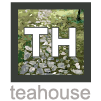User talk:Max.morris97
Welcome!
[edit]Hello, Max.morris97, and welcome to Wikipedia! My name is Adam and I work with the Wiki Education Foundation; I help support students who are editing as part of a class assignment.
I hope you enjoy editing here. If you haven't already done so, please check out the student training library, which introduces you to editing and Wikipedia's core principles. You may also want to check out the Teahouse, a community of Wikipedia editors dedicated to helping new users. Below are some resources to help you get started editing.
Handouts
|
|---|
Additional Resources
|
|
If you have any questions, please don't hesitate to contact me on my talk page. Adam (Wiki Ed) (talk) 21:09, 6 September 2016 (UTC)
While nationalism is considered a modern phenomenon by many historians, it has deep roots in Jewish antiquity, as supported by historian David Goodblatt in his book, Elements of Ancient Jewish Nationalism. Through mechanisms such as the Hebrew language and the role of scripture, early Jewish national identity was upheaved. Nationalism has attributed to the fostering and maintaining of the Jewish people’s cohesiveness and invigoration in an early time of survival.
Defining Nationalism in Antiquity
It has been cited that “most scholars agree that nationalism is a creature only of the past 200 years of history” (Irad Milkan). Many historians explain that nationalism is a modern invention as nations did not exist in antiquity. Yet, while nations may be of modern phenomena, ethnic groups have a longer history. Historian Irad Milkan writes, “Whereas nationalism is certainly a modern phenomenon, ethnicity is not. While there is much debate, nationalism does have roots in ethnic identity. As a result, David Goodblatt in Elements of Ancient Jewish Nationalism, consequently writes he will “use the terms “ethnicity and “national identity” interchangeably.” In addition, he explains that the traits of nationalism present make it such that nationalism did exist in antiquity.
Role of Scripture
Belief in shared kinship, and a common culture was widespread among ancient Judeans, helping spread a national identity. Historian David Goodblatt explores how such beliefs were able to spread amongst the Jewish people and he explains that it is dubious to assume that family traditions went far back enough or extended broadly enough to lead thousands of people spread over an extensive area to believe they were in fact all related. Historian Fergus Millar suggests that “the possession of a text, the Bible, which was both a national history and a source of law; a national language, Hebrew; a system of law…; social institution, such as schools, synagogues, and Sabbath worship” all progressed national identity and their nationalist movements of a strikingly modern kind. Through ideals promoted in scripture, such as religious observance practices and cultural customs, such ideals became part of national identity, Goodblatt argues. Scripture has been credited to have been a very effective medium in orchestrating the spread of nationalist identity.
Hebrew Language
The usage and promotion of the Hebrew language was a powerful medium in the expansion of national identity. Goodblatt cites the Hebrew language as a ‘defining feature in preserving and growing Jewish Identity.’ There is great controversy regarding whether or not Hebrew was the primary language in early Jewish settlements as Aramaic has been named by many to have taken its place. According to Irad Milkan, while Hebrew has been present in scripture, most of the people at the time were illiterate, and subsequently Hebrew in some areas was not actively spoken. Even so, David Goodblatt explains that “the mere presence of the language spoken or written for could invoke the concept of a Jewish national identity. Even if one knew no Hebrew or was illiterate, one could recognize that a group of signs was in Hebrew script. One might not understand a set of words heard, but one would still know they were in Hebrew. Those who knew the scriptures only in translation, even in if they believed that the translation was as inspired as the original, still were aware that there was an original written in Hebrew. However ignorant one might be of the language, one knew it was the language of the ancestors. Thus for people who identified as Jewish, Hebrew was always “their language.””
Your submission at Articles for creation: Jewish Nationalism in Antiquity (January 19)
[edit]
- If you would like to continue working on the submission, go to Draft:Jewish Nationalism in Antiquity and click on the "Edit" tab at the top of the window.
- If you need any assistance, you can ask for help at the Articles for creation help desk or on the reviewer's talk page.
- You can also use Wikipedia's real-time chat help from experienced editors.

|
Hello! Max.morris97,
I noticed your article was declined at Articles for Creation, and that can be disappointing. If you are wondering why your article submission was declined, please post a question at the Articles for creation help desk. If you have any other questions about your editing experience, we'd love to help you at the Teahouse, a friendly space on Wikipedia where experienced editors lend a hand to help new editors like yourself! See you there! » Shadowowl | talk 17:08, 19 January 2017 (UTC)
|
Hi there, I'm HasteurBot. I just wanted to let you know that Draft:Jewish Nationalism in Antiquity, a page you created, has not been edited in 5 months. The Articles for Creation space is not an indefinite storage location for content that is not appropriate for articlespace.
If your submission is not edited soon, it could be nominated for deletion. If you would like to attempt to save it, you will need to improve it.
You may request Userfication of the content if it meets requirements.
If the deletion has already occured, instructions on how you may be able to retrieve it are available at WP:REFUND/G13.
Thank you for your attention. HasteurBot (talk) 01:40, 30 July 2017 (UTC)
